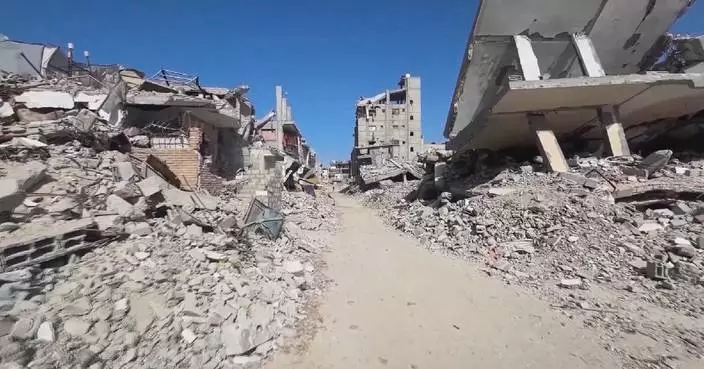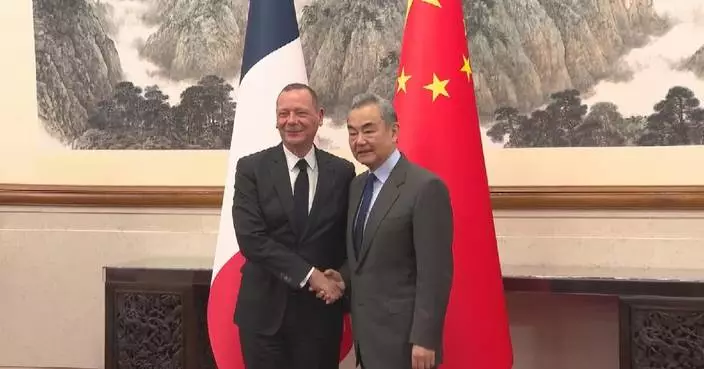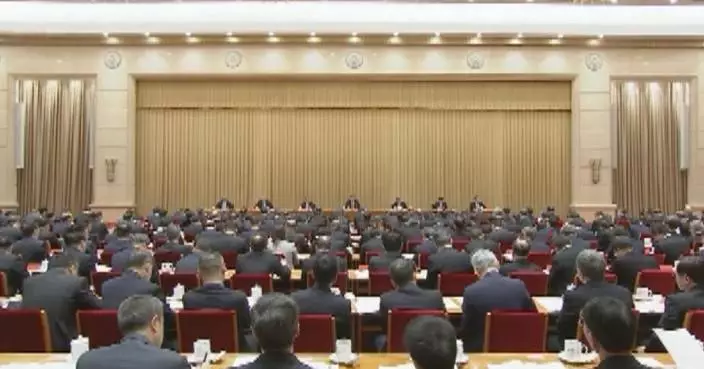China and France have been strengthening their medical and health cooperation over the past 60 years, with a particular focus on tackling infectious diseases, according to a former senior official in China's medical sector.
In an interview with the China Global Television Network (CGTN), Chen Zhu, former president of the Red Cross Society of China, shared his expertise on medical and health cooperation between the two countries, highlighting the benefits it has brought to both nations.
As one of the Chinese government-supported students to study abroad, Chen practiced medicine in France for a year and acquired his doctoral degree in the country. During the years, he developed an in-depth understanding of the French medical sector and decided to facilitate bilateral cooperation between the two countries.
"Back then, thanks to the policy of sending students overseas by the country, I went to the Saint Louis Hospital affiliated with the University of Paris Seven in France in 1984 and worked as a foreign resident physician for a year. Later on, after seeing the rise of molecular biology at that time, which brought revolutionary changes to medicine, I decided to register for a doctoral degree in molecular biology at the University of Paris Seven and studied for more than three years. I was deeply impressed by two things there. One is the scientific spirit of the French medical community and the other is the communications between different disciplines," said Chen.
After returning to China, Chen has facilitated many cooperation projects between the Chinese and French medical sectors.
"One example is cooperation in the field of emerging and sudden infectious diseases. I always remember in the spring of 2003, when our country was suffering from the SARS epidemic, many political leaders had postponed or canceled their visits to China. But on April 25, when the epidemic in Beijing was still severe, former Prime Minister (Jean-Pierre) Raffarin was sent by then French President (Jacques) Chirac to visit China with a delegation, and he said that 'he had confidence in China's healthcare system and wanted to bring this confidence to the international community'," said Chen.
After being inaugurated as the president of the Red Cross Society of China, Chen has been promoting international cooperation with global Red Cross organizations, with the Red Cross in France as a highlight.
"The Red Cross Society of China was established in 1904. After 120 years of development, we have kept close cooperation with international Red Cross organizations. France's Red Cross Society has done a particularly good job in emergency response, including emergency response to natural disasters, as well as epidemics," said Chen.
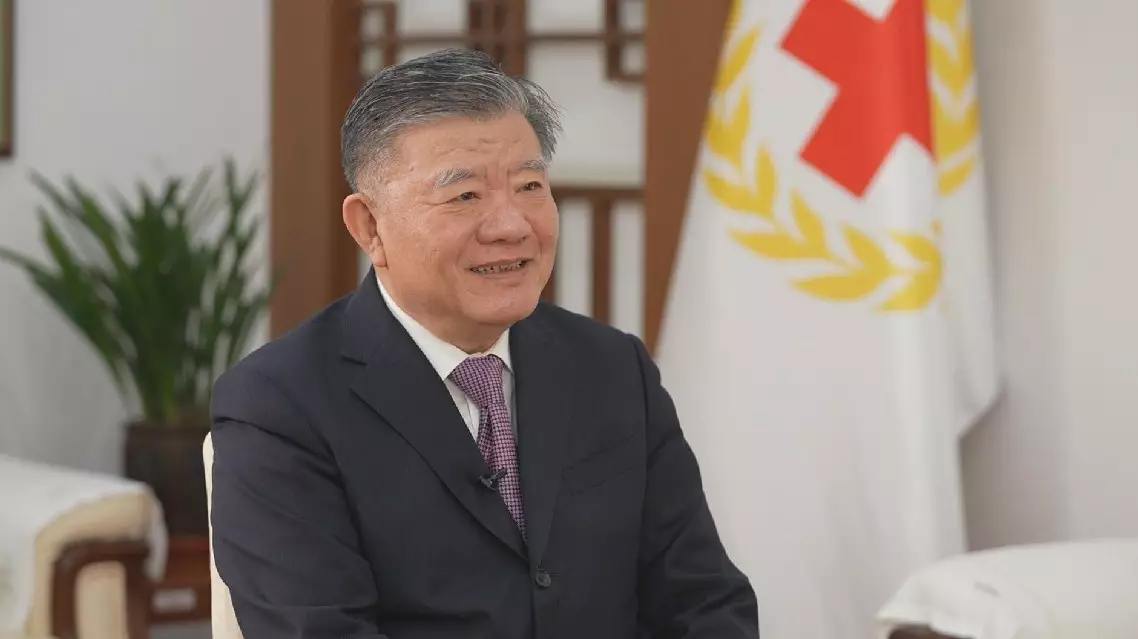
China, France see deepening medical cooperation over 60 years: former senior official
Senior officials from key Chinese ministries have outlined specific measures for next year's economic work, with a focus on boosting the private economy, driving consumption, expanding opening-up, and promoting the healthy development of the real estate sector.
Deputy Director of the National Development and Reform Commission Zhao Chenxin, Vice Minister of Commerce Sheng Qiuping, and Vice Minister of Housing and Urban-Rural Development Dong Jianguo shared their insights at the Annual Conference on China's Economy, held in Beijing on Saturday. Hosted by the China Center for International Economic Exchanges (CCIEE), a leading public policy think tank, the conference seeks to harness collective wisdom to propel China's economic development.
At the event, Zhao announced that next year will see broader implementation of large-scale equipment upgrades and trade-in programs for consumer goods. Greater efforts will be made to support projects crucial for implementing major national strategies and enhancing security capacities in key areas. The government will encourage the healthy development of private capital and facilitate its participation in infrastructure projects.
Additionally, the deputy director of the country's top economic planning body highlighted the government's commitment to advancing key reform initiatives.
"We will draft guidelines for establishing a unified national market, eliminate local protectionism and market segmentation, and conduct comprehensive pilot reforms to deepen the market-driven allocation of production factors. A private sector promotion law will be introduced to safeguard the rights and interests of entrepreneurs. Other measures include strengthening regulation to ensure the healthy development of the platform economy and launching a special campaign to reduce logistics costs across society," Zhao said.
Sheng emphasized the importance of promoting consumption through incentive campaigns aimed at creating a vibrant consumer environment. Other efforts will include expanding service consumption, optimizing consumption structures, and cultivating new consumption models.
"We will steadily expand the opening-up of sectors such as telecommunications, the internet, education, culture, and healthcare. Meanwhile, we will support consumption in areas like culture and tourism, elderly care, childcare, and household services, with focus on enriching supply and diversifying consumption scenarios," Sheng said.
Dong outlined plans for stabilizing the property market and establishing a new development model for the sector. Reforms will be implemented to improve the sales system for commercial housing, with an emphasis on promoting ready-to-sell housing. For projects still under pre-sale arrangements, pre-sale funds will be more effectively regulated to prevent delivery risks, he said.
Furthermore, the vice minister of housing and urban-rural development emphasized the need for a comprehensive life-cycle safety management system for housing to identify and address safety issues in existing properties.
"At the industry level, we will guide the real estate sector toward a transition from rapid growth to high-quality development. At the enterprise level, real estate companies will be encouraged to shift from scale expansion to prioritizing the quality of their projects. Efforts will be intensified to build safe, comfortable, green, and smart homes," Dong said.
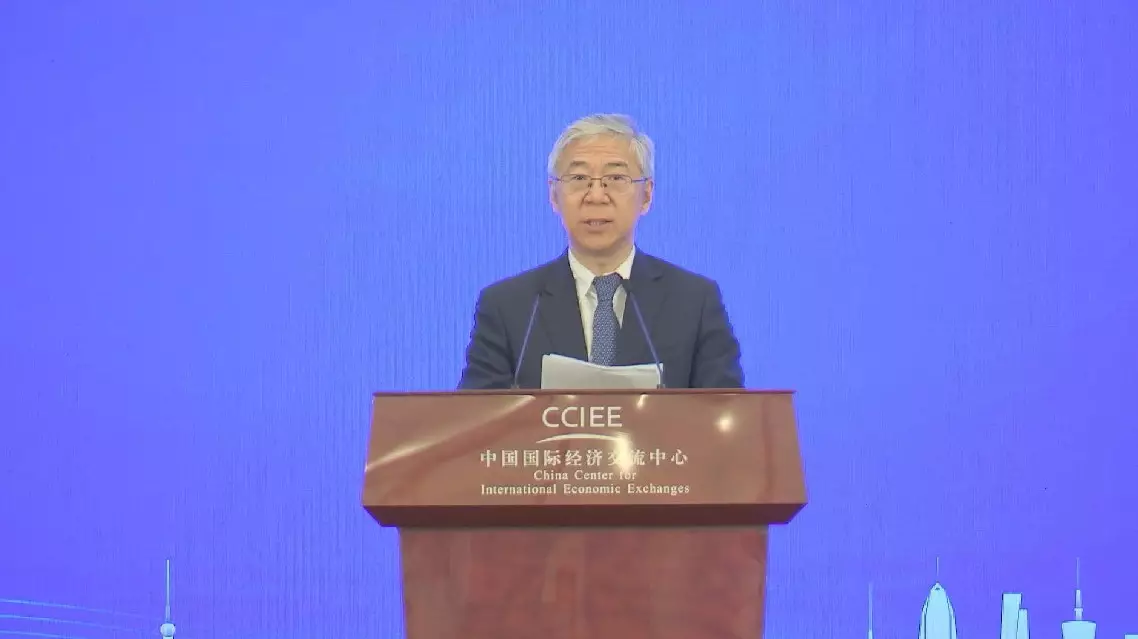
Senior Chinese officials outline specific measures for 2025 economic work




